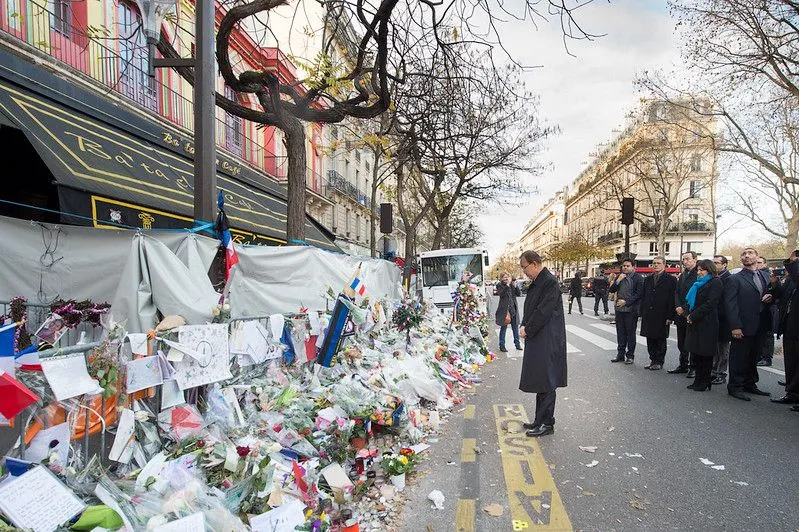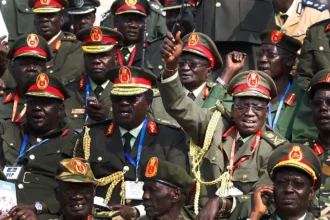A Study on Radicalization from the Ground Up
Over the past two decades, the term ‘radicalization’ has been the subject of a rapidly expanding body of literature, as it has become increasingly embedded in social sciences and the political-media landscape. Although subject to numerous academic controversies, it has largely established itself in both public debates and the media arena.
This work, based on an investigation conducted in twelve French prisons with individuals convicted of terrorism-related offenses between 2018 and 2022, provides theoretical tools aimed at refining the understanding of jihadist engagement as it has crystallized over the past decade. The chosen timeframe (2012-2022) corresponds to a ten-year cycle of violence, ranging from the Merah case in March 2012 to the murder of Corsican nationalist activist Yvan Colonna by Franck Elong Abé in March 2022.
Our focus has been on the “black box” represented by the empirical conditions of receptivity and adherence to these ideological movements.
Beyond the emotional aftermath, Penser la radicalisation djihadiste. Acteurs, Théories, Mutations questions what this intrinsically heterogeneous phenomenon reveals about the underlying trends and socio-political evolutions characterizing French society. The core of the reflection aims to examine and critique the limitations of the existing literature as well as the scientific debates concerning the thorny issue of jihadist radicalization.
An Exponential Literature
With the escalation of jihadist violence post-2015, jihadist radicalization has, within a few years, become a significant—if not central—object of study within French social science research. Today, there are tens of thousands of scientific articles dedicated to this topic. From variables of engagement to processes of disengagement and the influence of digital tools on recruitment strategies, the subject has been approached from highly eclectic angles and by disciplines as diverse as sociology, political science, psychology, anthropology, psychoanalysis, and even Islamic studies.
The collection and analysis of field data allowed us to identify a five-part typology of jihadization processes.
Similar to the United States after September 11, 2001, security concerns have generated growing interest and, consequently, an increase in funding opportunities that have deepened knowledge on the subject. In France, more than elsewhere, the theme of jihadist radicalization has provoked a particularly strong sense of unease among the population.
This is primarily due to the shock effect following the unprecedented level of violence reached on national territory (255 deaths during the 2014-2020 period alone), but also because it is directly linked to a religious object that, in the French context, still crystallizes passionate debates. The rise of identity and populist movements in France, as well as in much of Europe, combined with the overexposure of controversies related to Islam, adds further complexity to the analysis.
A Fragmentation of Jihadization Processes
One of the guiding hypotheses of our investigation is that the massification and sociological diversification of jihadist profiles, particularly facilitated by the caliphal project of the Islamic State, necessitates broadening the scope of reflection and definitively breaking away from the monocausal theoretical approaches that have overly dominated French academic debate over the past decade.

Although heuristically relevant, the various theoretical paradigms employed by researchers have tended to impose frameworks that reify a fundamentally heterogeneous social and political phenomenon. Most explanatory systems developed by scholars have tended to validate pre-existing analytical frameworks.
For instance, authors with culturalist or neo-Orientalist approaches have focused on the specific and irreducible traits of Islam, implicitly or explicitly advocating for the recognition of a sort of jihadology akin to Sovietology. Critical sociologists or those influenced by postcolonial studies have primarily emphasized the power dynamics between Western nations and countries of the Global South, or the discrimination affecting Western populations of Muslim culture (racism, negrophobia, Islamophobia, etc.).
Most explanatory systems developed by scholars have tended to validate pre-existing analytical frameworks.
Social movement specialists have interpreted it in terms of political activism, while psychologists have delved into the psyches of these individuals, attempting to identify potential flaws in their personalities (identity, narcissistic, affective, etc.). However, given its desire for territorialization and the sophistication of its communication, the jihadist engagement promoted by the Islamic State cannot be exclusively confined to any one of these categories.
Contrary to approaches that apply and validate a pre-existing theoretical model to an unprecedented social reality, our approach seeks to start from the multiple configurations directly observable on the ground and describe the multiplicity of entry points into jihadization processes. This methodological approach leaves room for the unexpected and even for surprises. Following this strategy, our focus has been on the “black box” represented by the empirical conditions of receptivity and adherence to these ideological movements.
The Theoretical Pentagon of Jihadization
Applied to our object of study, this principle involved starting from the heterogeneity of social trajectories observed empirically and deriving a coherent ideal-typical classification. The collection and analysis of field data allowed us to identify a five-part typology of jihadization processes. This categorization, titled the “theoretical pentagon of jihadization,” accounts for the plurality of modes of entry into behaviors that break with social order and often (though not always) aim to subvert a political order.
The exploration of these “high-risk” forms of activism highlights five processes based on devotion, emotion, politicization, manipulation, and drive. Each vector of engagement brings together actors whose backgrounds and personalities appeared sufficiently homogeneous and coherent to be classified as jihadization logics. Whenever possible, we endeavored to analyze the interaction between socialization frameworks, biographical events experienced by the actors (encounters, ruptures, psychological wounds, psychological traumas, moral shocks), and their sociocultural backgrounds. When feasible (rarely), we explored their social and family environments. This ideal-typical classification is neither fixed nor exclusive of phenomena of overlapping and intertwining between the different identified groups.
One of the major lessons from the fragmentation of these forms of engagement is the observation of a dynamic of jihadism’s autonomization. In order to maximize its fighting base, IS has indeed established propaganda and recruitment strategies that no longer make Salafist socialization or even religious orthopraxy a structuring or relevant marker of engagement, sometimes implicitly validated in scientific production.
In this sense, while Salafism and jihadism continue to draw from a common ideological foundation, the recruitment specialists of the caliphal entity have, according to our observations, managed to disarticulate the two trends at an unprecedented level. This disaggregation has resulted in the attraction of supporter profiles that are extremely disparate in terms of social backgrounds and degree of religiosity. This observation not only invites us to think of jihadism as a fundamentally heterogeneous sociological mosaic but also to develop disengagement mechanisms that align with the vectors of engagement.











